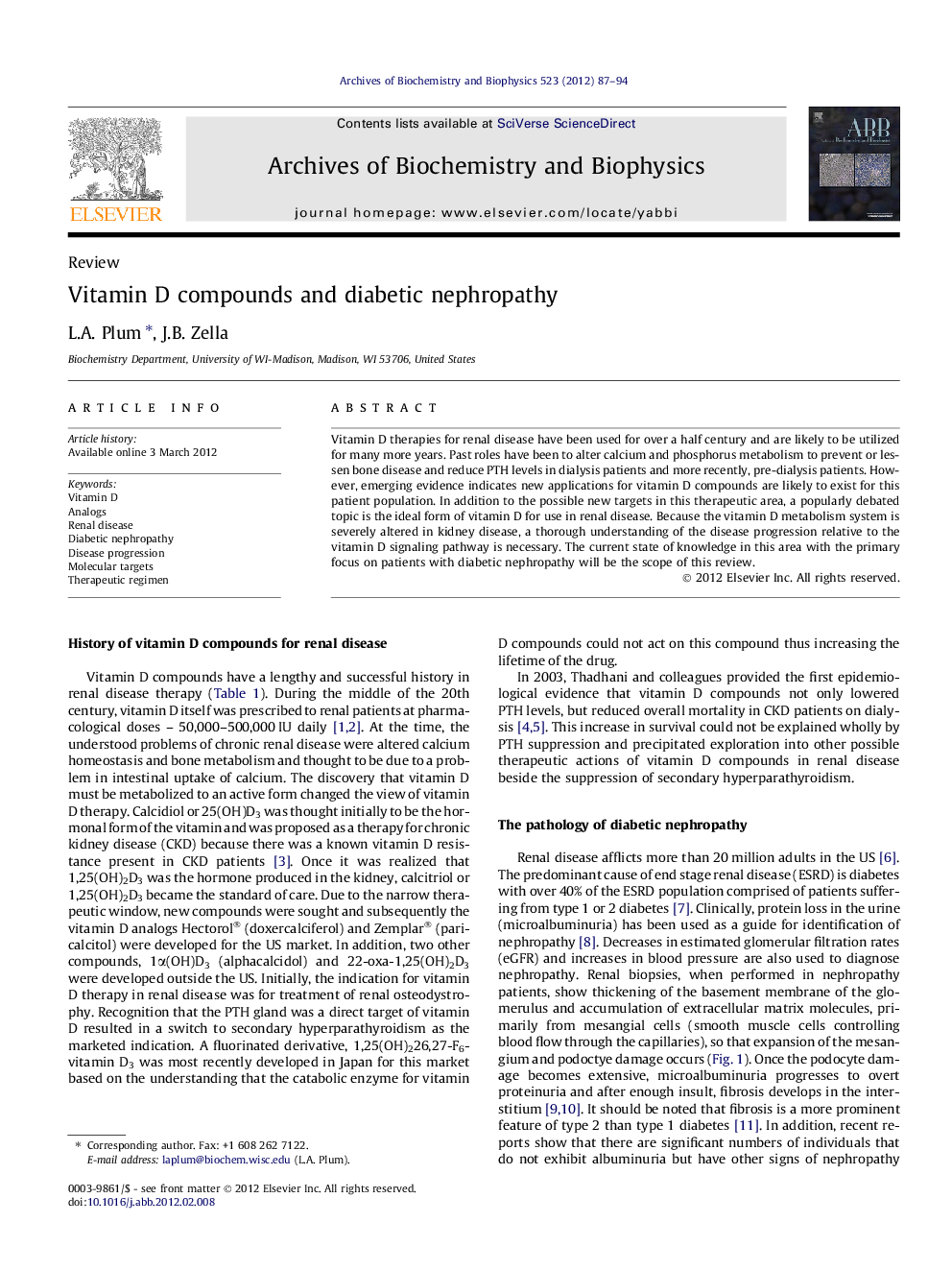| Article ID | Journal | Published Year | Pages | File Type |
|---|---|---|---|---|
| 1925544 | Archives of Biochemistry and Biophysics | 2012 | 8 Pages |
Vitamin D therapies for renal disease have been used for over a half century and are likely to be utilized for many more years. Past roles have been to alter calcium and phosphorus metabolism to prevent or lessen bone disease and reduce PTH levels in dialysis patients and more recently, pre-dialysis patients. However, emerging evidence indicates new applications for vitamin D compounds are likely to exist for this patient population. In addition to the possible new targets in this therapeutic area, a popularly debated topic is the ideal form of vitamin D for use in renal disease. Because the vitamin D metabolism system is severely altered in kidney disease, a thorough understanding of the disease progression relative to the vitamin D signaling pathway is necessary. The current state of knowledge in this area with the primary focus on patients with diabetic nephropathy will be the scope of this review.
► Vitamin D therapies have a long history in renal disease. ► New therapeutic targets for vitamin D compounds in this disease likely exist. ► A better understanding of disease development relative to hits on the vitamin D system is needed. ► The best vitamin D treatment regimen requires further study.
